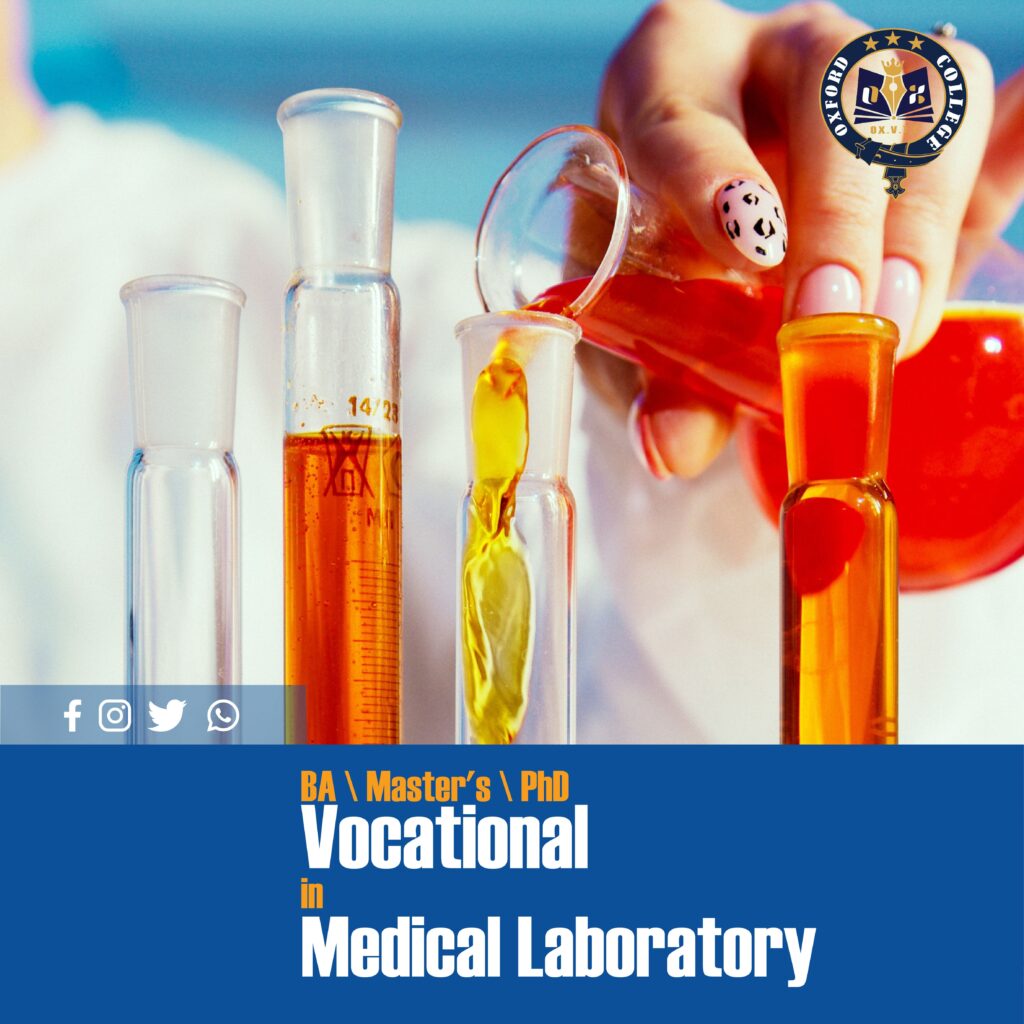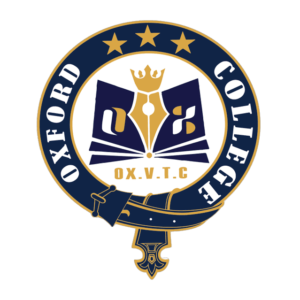Department of Medical Laboratories

اتصل بنا عبر البريد الإلكتروني على info@oxfordcollage.uk أو أرسل استفسارًا تجاريًا عبر الإنترنت.
who should attend?
Medical laboratory technicians
Medical specialists
Employees of medical companies, health organizations and hospital laboratories
Anyone who wants to support their skills and enter the field of work in this specialty
objective
The specialty of medical laboratories aims to:
Finding laboratory technicians ready to keep pace with scientific advances in laboratory medicine.
Graduation of qualified cadres in practical and scientific terms has the ability to deal with modern laboratory techniques and devices.
Stimulating and promoting scientific research in the field of laboratory medicine
Give accurate and logical information to laboratory analysis.
Know the basis for proper sampling, know the correct samples by collecting different samples of fluids or blood, and identifying the specifications for their acceptance or rejection in the laboratory.
Use and maintenance of automated analysis devices.
content
How the curriculum is built and what is Topics addressed in the curriculum?
1- Field training: Field training is meant to be several experiences, cultures, knowledge and skills that are presented in different bodies in a planned and organized way aimed at raising the level of understanding and awareness among students and increasing their experience and skills and raising their levels in a way that will help them later to succeed in achieving their goals.
2- Parasitology: It is the science that is concerned with the study of parasites and their relationship with the host body. Studies the relationship between two beings one feeding on the other and the other is called the host organism and the relationship between them is called intruding
3. Virology: It is the science specialized in the study of viruses – invisible and the genes of parasitic particles surrounded by a protein casing and virus-like particles,
4.Clinical chemistry: Most existing laboratories are highly developed, using rigorous monitoring and controlled by high quality systems. Tests requiring blood cell measurement and examination, in addition to the study of blood clotting, are not included in this branch of pathology in many countries.
5- Microbiology: It is the science that specializes in the study of single-celled, multicellular as well as non-nucleus microbiology such as viruses, including some real nuclei such as fungi and priorities, as well as nucleic primitives such as bacteria.
6- Genetics: It is science that studies genes and genetics and the resulting diversity of living organisms. The principles of geneinheritance have long been used to improve agricultural yields and improve animal breeding.
Looking for higher education, at the postgraduate level (Master’s, Professional Doctorate) ?
